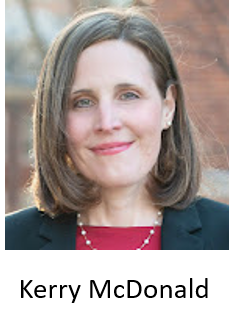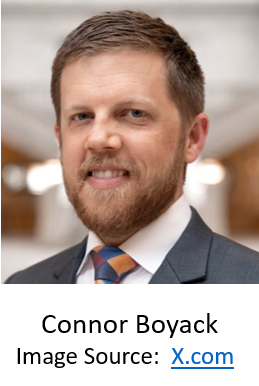Education Briefs
New microschools are opening this fall, continuing the trend in recent years of parents seeking better education alternatives for their children and teachers abandoning their public-school classrooms to become education entrepreneurs. The Foundation for Economic Education’s Kerry McDonald recently reported on new microschools opening in the Phoenix, Arizona area and across the country. She cited as an example  former public high school English teacher Elisa Hernandez, who opened her home-based microschool called Noema Learning with 14 middle- and high school students. Parents are able to cover the tuition Hernandez charges using Arizona’s new universal education savings account (ESA) program. Writing on The 74 website, McDonald observed that “as parent demand for more individualized education options grows, everyday entrepreneurs are stepping up....” She singled out the Hilton Horizons Academy in Kingsport, Tennessee as being “one of the first in a growing number of new schools to launch this academic year,” having opened its doors on August 5th. The school’s founder, former teacher Candice Hilton, spent seven years in the public-school system, and then decided to become a microschool founder after researching what it would take to homeschool her daughter. McDonald noted that many microschool architects seek help from KaiPod Learning through the KaiPod Catalyst program, which offers mentorship and “business startup support and ongoing operational assistance to school founders.” This cohort-style program “is free to participants with a small revenue-sharing agreement” if they decide to found a school following the program. According to FEE, these alternative schools, which “are sprouting across the country,” offer teachers and students the freedom and flexibility that enable both to flourish.
former public high school English teacher Elisa Hernandez, who opened her home-based microschool called Noema Learning with 14 middle- and high school students. Parents are able to cover the tuition Hernandez charges using Arizona’s new universal education savings account (ESA) program. Writing on The 74 website, McDonald observed that “as parent demand for more individualized education options grows, everyday entrepreneurs are stepping up....” She singled out the Hilton Horizons Academy in Kingsport, Tennessee as being “one of the first in a growing number of new schools to launch this academic year,” having opened its doors on August 5th. The school’s founder, former teacher Candice Hilton, spent seven years in the public-school system, and then decided to become a microschool founder after researching what it would take to homeschool her daughter. McDonald noted that many microschool architects seek help from KaiPod Learning through the KaiPod Catalyst program, which offers mentorship and “business startup support and ongoing operational assistance to school founders.” This cohort-style program “is free to participants with a small revenue-sharing agreement” if they decide to found a school following the program. According to FEE, these alternative schools, which “are sprouting across the country,” offer teachers and students the freedom and flexibility that enable both to flourish.
A Minnesota school superintendent says Democrat governor and vice-presidential candidate Tim Walz has had a negative impact on K-12 education in the state. Private Christian school superintendent Kim Friesen, a 21-year resident of rural Minnesota, told Fox News Digital that Walz “ignored” rural Minnesotans during the COVID-19 pandemic and beyond, particularly with regard to connectivity so that students could continue their lessons  online at home during the lockdowns. She said Walz was focused on large metro areas like Minneapolis-St. Paul in the center of the state, and that “north, south rural and east-west [rural] areas did not get his attention, and we deserved his attention.” An article on Education Curated contends that Walz’s one-size-fits-all treatment of the state’s communities “has led to widespread frustration and a feeling of being marginalized” among rural voters. Friesen warned that the policies Walz has enacted in Minnesota “could be reflected at a national level — such as social issues and illegal immigration.” She pointed to Walz’s signing of an order “making Minnesota a ‘trans refuge state’ where minors from out of state [can] receive transgender surgical procedures and hormone prescriptions,” labeling his action “heartbreaking. It rips away parents’ authority,” she said. “And I don’t believe that’s God’s design. God gave children to parents, not to the government.” Friesen added that she does not view either Kamala Harris or Tim Walz as being ready to lead the country. “They don’t have the wherewithal to fight for the people who are here. And I think they have some distorted views on how to move forward that would not better our state or our nation. So that’s a concern.”
online at home during the lockdowns. She said Walz was focused on large metro areas like Minneapolis-St. Paul in the center of the state, and that “north, south rural and east-west [rural] areas did not get his attention, and we deserved his attention.” An article on Education Curated contends that Walz’s one-size-fits-all treatment of the state’s communities “has led to widespread frustration and a feeling of being marginalized” among rural voters. Friesen warned that the policies Walz has enacted in Minnesota “could be reflected at a national level — such as social issues and illegal immigration.” She pointed to Walz’s signing of an order “making Minnesota a ‘trans refuge state’ where minors from out of state [can] receive transgender surgical procedures and hormone prescriptions,” labeling his action “heartbreaking. It rips away parents’ authority,” she said. “And I don’t believe that’s God’s design. God gave children to parents, not to the government.” Friesen added that she does not view either Kamala Harris or Tim Walz as being ready to lead the country. “They don’t have the wherewithal to fight for the people who are here. And I think they have some distorted views on how to move forward that would not better our state or our nation. So that’s a concern.”
Posting on X (formerly Twitter), conservative author of the Tuttle Twins book series, Connor Boyack, cited a study that shows conservatives are happier than liberals/progressives. Boyack highlighted the SSM Mental Health survey that studied high school seniors  from 2005 — 2018, and found that liberal students were “significantly more depressed than conservatives, have been for years, and the gap is growing over time.” Boyack wrote that since its beginning in 1972, the General Social Survey (GSS) has shown “a consistent 10 percent gap between the share of conservatives versus liberals who report being ‘very happy.’” In the SSM Mental Health — ScienceDirect survey abstract, researchers state: “From 2005 to 2018, 19.8 percent of students identified as liberal and 18.1 percent identified as conservative, with little change over time. Depressive affect (DA) scores increased for all adolescents after 2010, but increases were most pronounced for female liberal adolescents ... Trends in adolescent internalizing symptoms diverged by political beliefs, sex, and parental education over time, with female liberal adolescents experiencing the largest increases in depressive symptoms, especially in the context of demographic risk factors including parental education.” The abstract culminates by summarizing: “These findings indicate a growing mental health disparity between adolescents who identify with certain political beliefs. It is therefore possible that the ideological lenses through which adolescents view the political climate differentially affect their mental wellbeing.” Boyack’s post asserts that “the wellbeing gap is not unique to youth. This gap exists in polling for decades.”
from 2005 — 2018, and found that liberal students were “significantly more depressed than conservatives, have been for years, and the gap is growing over time.” Boyack wrote that since its beginning in 1972, the General Social Survey (GSS) has shown “a consistent 10 percent gap between the share of conservatives versus liberals who report being ‘very happy.’” In the SSM Mental Health — ScienceDirect survey abstract, researchers state: “From 2005 to 2018, 19.8 percent of students identified as liberal and 18.1 percent identified as conservative, with little change over time. Depressive affect (DA) scores increased for all adolescents after 2010, but increases were most pronounced for female liberal adolescents ... Trends in adolescent internalizing symptoms diverged by political beliefs, sex, and parental education over time, with female liberal adolescents experiencing the largest increases in depressive symptoms, especially in the context of demographic risk factors including parental education.” The abstract culminates by summarizing: “These findings indicate a growing mental health disparity between adolescents who identify with certain political beliefs. It is therefore possible that the ideological lenses through which adolescents view the political climate differentially affect their mental wellbeing.” Boyack’s post asserts that “the wellbeing gap is not unique to youth. This gap exists in polling for decades.”
Want to be notified of new
Education Reporter content?
Your information will NOT be sold or shared and will ONLY be used to notify you of new content.
Click Here
Return to Home Page
